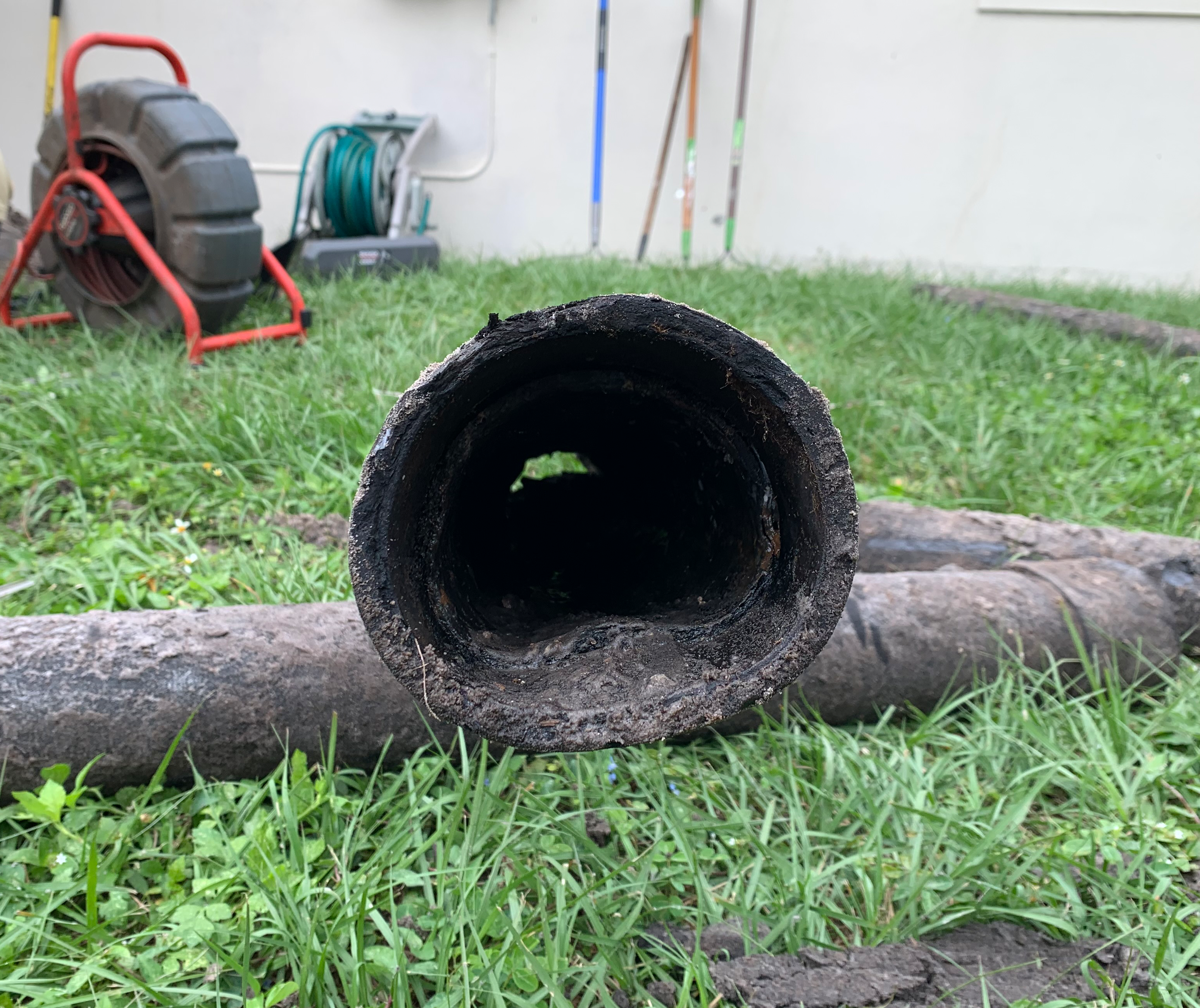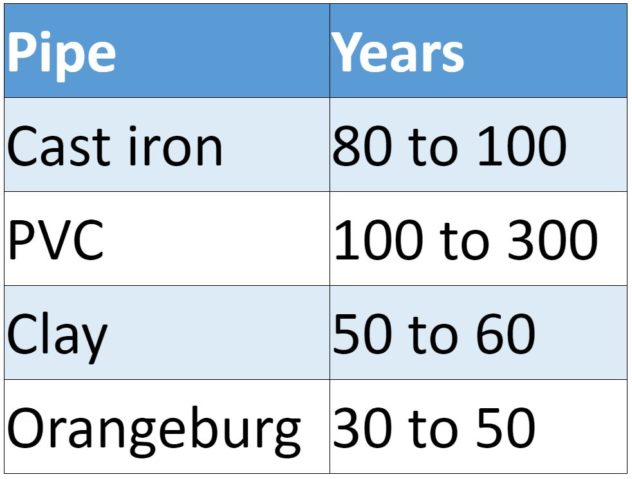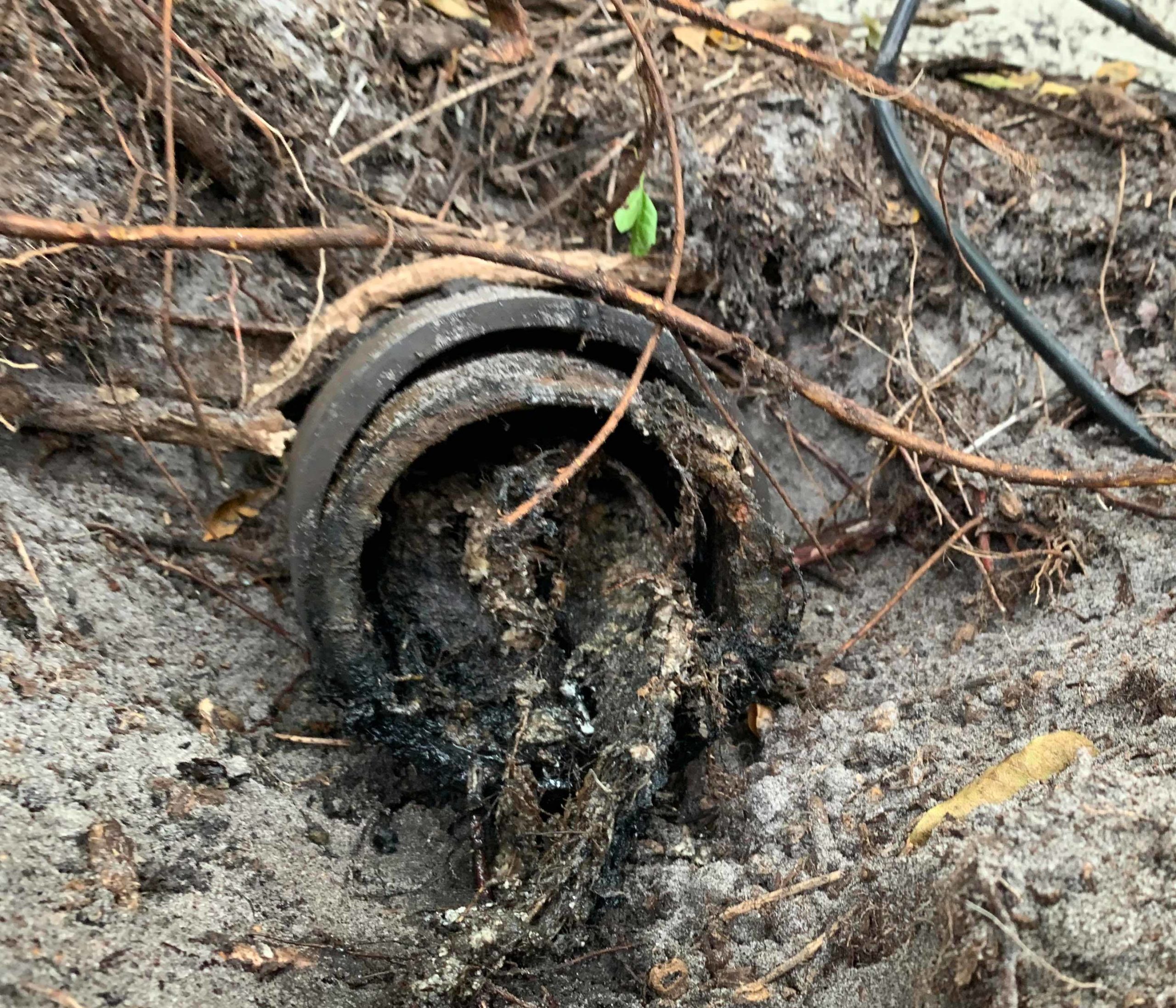Should You Repair Your Orangeburg Sewer Pipe?
"Why repairing your Orangeburg might be a waste of time."

So you might be wondering, how do I repair my sewer line if it's made of Orangeburg? First off, if you have Orangeburg, it might be wise to get a professional to check out where the issue lies. Orangeburg can be a tricky issue, and a repair might not be the best way to go.
What is Orangeburg?
Orangeburg is a pipe commonly used for sewer lines. It’s composed of layers of wood pulp that have been compressed together and coated with a tar compound. They began installing it into homes in the 1950s at the time it was a new piping alternative. Other forms of piping, such as cast iron, were being rationed due to the war efforts in WWII, making Orangeburg a popular alternative.
Orangeburg Doesn't Last Long
Orangeburg has been plaguing residential homes since shortly after the 1950s. The problem with Orangeburg is that it doesn’t stand the test of time and can lead to premature failure. Compared to other pipes, its lifetime doesn't compare well.

Why does it fail?
Orangeburg failures can happen in various ways. Most leading back to the issue that it’s about as strong as a toilet paper tube. 30-50 years tends to be about how long it’ll last before you start getting problems, though problems can occur sooner.
Collapses and Pipe Integrity
This pipe is prone to collapsing over time, leading to clogs and drainage problems. If a tree happens to grow atop your pipe, or your pipe runs under a driveway, your pipe is even more likely to experience some sort of collapse. Due to the weak nature of the Orangeburg, the outer lining will start to oval and cave in on itself.
Roots

Tree roots are also prone to find their way into your Orangeburg piping. Cracks and imperfections are pretty commonplace when it's been sitting underground for a while. Once the roots find a way into your plumbing system, it's usually game over. The woody tendrils will continue to grow and cause stoppages until you repair the spot in which the feeder roots find themselves.
Maintaining Your Orangeburg Sewer Line
There are some preventative measures you can take to stop clogs from happening. One of them is being choosy about what you decided to flush down your drain.
Avoid flushing:
- Feminine products
- Tissues
- Wet Wipes
- Q-tips
- Paper towels
- Cotton balls
- Floss
- Cat litter
- Condoms
- Diapers
You should avoid flushing things that can get caught in your sewer lines, or getting your lines cabled once a year can help prevent backups. There are only so many options for maintenance when your sewer is made of fragile Orangeburg.
Check out more sewer maintenance tips here.
Figuring Out If Your Home Has Orangeburg
Once you start getting stoppages or slow-draining plumbing, it might be time to start investigating and find out what kind of pipe you have. There are usually two ways to determine if your line is Orangeburg.
Dig it Up
If you know the orientation of where your sewer comes out of the home, you can dig up and check out the pipe. Most Orangeburg extends about 5ft from the home's foundation and stretches out to the city's sewer main. Depending on where you live, your sewers can be from 18-30 inches deep to 5-6 ft deep.
Get a Camera Inspection
Getting your drain lines camera’d is usually the best way to go. Not only will a camera inspection tell you whether you have Orangeburg, but it will also help locate where the issue is. Revealing what lies below your home helps determine whether
your whole line needs replacement or if it's just a single spot giving you trouble.
Should I Replace or Repair My Orangeburg Sewer Line?
The short answer, yes. If you find out you have Orangeburg, I highly recommend you have it replaced by professionals. Usually, Orangeburg isn’t installed directly under your home, which is good news. Instead, you'll most likely be digging up the front or backyard to replace the sewer line.
You might be inclined to repair your sewer line; however, I wouldn’t recommend it. Orangeburg becomes so brittle that just the act of digging it up can cause it to fracture in multiple spots. Not only can it fracture, but it's usually not strong enough to withstand a connection to a new pipe.
Conclusion
If your home has Orangeburg, it might be time to consult an expert plumber. Failure is just a matter of time and if you happen to have no issues, consider yourself lucky. While there are some actions you can take to maintain or repair your line, you’ll most likely be looking at a future replacement of the sewer line. Getting a professional camera inspection can be the first step in the right direction.
Pinellas County, FL Plumbing Locations
Clearwater, FL
Clearwater Beach, FL
Safety Harbor, FL
Oldsmar, FL
Dunedin, FL
Palm Harbor, FL
East Lake, FL
St. Petersburg, FL
St. Pete Beach
Indian Rocks Beach
Largo, FL
Pinellas Park, FL
Gulfport, FL
Treasure Island
Madeira Beach
South Pasadena, FL
Kenneth City, FL
Seminole, FL
Tarpon Springs, FL
Payment Methods

Contact Us
Plumb Crazy Plumbers Inc.
14 Scoter Cove
Safet Harbor, FL 34695
Phone: 727-729-9400
License# CFC1428868
